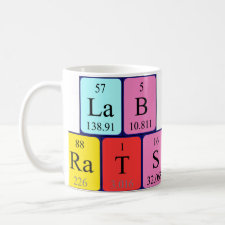
Authors: Wang HF, Zhu YZ, Lin JP, Yan XP
Article Title: Fabrication of molecularly imprinted hybrid monoliths via a room temperature ionic liquid-mediated nonhydrolytic sol-gel route for chiral separation of zolmitriptan by capillary electrochromatography.
Publication date: 2008
Journal: Electrophoresis
Volume: 29
Issue: (4)
Page numbers: 952-959.
DOI: 10.1002/elps.200700402
Abstract: A room temperature ionic liquid (RTIL)-mediated nonhydrolytic sol-gel (NHSG) protocol was explored for the fabrication of new molecularly imprinted silica-based hybrid monoliths for chiral separation of a basic template zolmitriptan by CEC. The RTIL-mediated NHSG protocol involved free-radical copolymerization and NHSG process. Three carboxylic acids (trifluoromethyl acrylic acid, cinnamic acid, and methacrylic acid (MAA)) were examined as both the functional monomers and the catalysts for the NHSG condensation of methacryloxypropyltrimethoxysilane (MPTMS) to form silica-based framework. RTIL was incorporated to reduce gel shrinkage and also to act as the pore template. The effects of carboxylic acids and RTIL on the performance of the silica-based hybrid molecularly imprinted polymer (MIP) monoliths were investigated in detail to realize excellent chiral recognition and to give new insights into the mechanism of the RTIL-mediated NHSG strategy. Excellent chiral separation of (R)/(S)-zolmitriptan was achieved when the molar ratio of MAA to MPTMS was 1:4 and 1:2 with RTIL involved. The synergism of the free-radical copolymerization of the C=C bond of carboxylic acids and MPTMS with the NHSG condensation of MPTMS catalyzed by the carboxylic acids was demonstrated. The incorporation of RTIL increased porosity, and hence improved selectivity of the prepared hybrid monoliths
Author keywords: capillary electrochromatography, Hybrid molecularly imprinted polymers, Nonhydrolytic sol-gel process, Room temperature ionic liquid, Zolmitriptan



Join the Society for Molecular Imprinting

New items RSS feed
Sign-up for e-mail updates:
Choose between receiving an occasional newsletter or more frequent e-mail alerts.
Click here to go to the sign-up page.
Is your name elemental or peptidic? Enter your name and find out by clicking either of the buttons below!
Other products you may like:
 MIPdatabase
MIPdatabase









